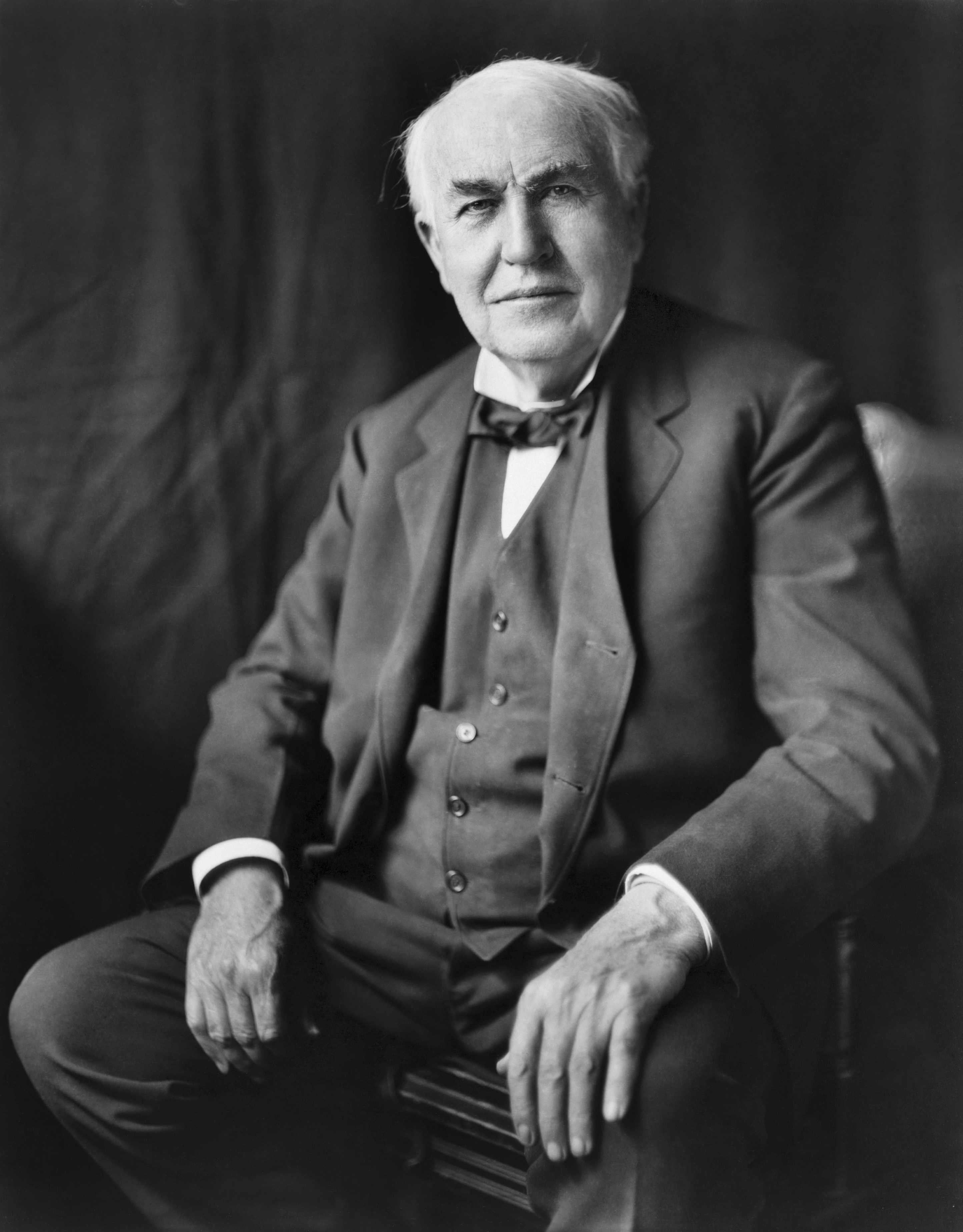Today we’re returning to our series of occasional blogs spread over the year and looking at British proverbs, their meanings and origins.
A proverb is a short, pithy saying that neatly expresses a commonly held truth or piece of wisdom. Proverbs have proved so useful in language that they appear in most cultures, often playing an important role in religion or spiritual teachings, as well as everyday life.
A great deal of common sense and worldly experience is encapsulated in proverbs. Today we’ll take a look at some beginning with the letter ‘G’:
 Genius is 1% inspiration, 99% perspiration: The origin of most proverbs is difficult to pin down, but not this one. It was coined by American inventor Thomas Alva Edison (pictured right), who is quoted saying it in the September 1932 edition of “Harper’s Monthly Magazine”. It means, of course, that what society terms ‘genius’ – with the inference that it is some kind of divine gift – is in fact largely the result of hard graft. If anyone should know, it would be Edison, who lived from 1847 to 1931 and is often described as America’s greatest inventor, holding 1,093 US patents and many more in the UK and Europe. Electric lighting, sound recording and motion pictures are just a few of the world-changing technologies that sprung from his inventive mind… and the sweat of his brow.
Genius is 1% inspiration, 99% perspiration: The origin of most proverbs is difficult to pin down, but not this one. It was coined by American inventor Thomas Alva Edison (pictured right), who is quoted saying it in the September 1932 edition of “Harper’s Monthly Magazine”. It means, of course, that what society terms ‘genius’ – with the inference that it is some kind of divine gift – is in fact largely the result of hard graft. If anyone should know, it would be Edison, who lived from 1847 to 1931 and is often described as America’s greatest inventor, holding 1,093 US patents and many more in the UK and Europe. Electric lighting, sound recording and motion pictures are just a few of the world-changing technologies that sprung from his inventive mind… and the sweat of his brow.
Great minds think alike: There’s no mystery to the meaning of this well-used proverb, which has a literal interpretation – that powerful intellects will reach the same conclusion. Of course, as with many proverbs and sayings, there is another which sheds a different light, by pointing out that “fools seldom differ”. So before you and a friend congratulate yourselves on having ‘great minds’ because you agree on something, remember there could be a less flattering explanation! This proverb in its current form isn’t all that old, found in print from around the early 1800s, but the sentiment behind it goes back much further. A differently worded version from 1618 says that “good wits do jump”, in which the older meaning of ‘jump’ is to coincide or completely agree.
Good fences make good neighbours: Dating from the mid-17th century, this proverb tells us that a degree of separation between two parties often makes for better relations between them. Another phrase which hints at the same thing is “familiarity breeds contempt” – the more time you spend with someone, the more you will find to dislike in them. “Good fences make good neighbours” seems like a very British sentiment, since being ‘standoffish’ is almost a national virtue, yet the proverb seems to have sprung from America. While it can be taken in a very literal sense as referring to the people who live next door, the ‘neighbours’ might also be other districts, nations or even continents. In the 1920s and ’30s, America operated a policy of ‘isolationism’, concerning itself with its own internal affairs and reluctant to get entangled with the politics and conflicts of other nations. At this time, many US statesmen espoused the ‘good fences’ proverb, but even the USA was forced to reluctantly ‘get off the fence’ during World War Two.
Give a man a fish…: This proverb in full says: “Give a man a fish and you feed him for a day; teach him how to fish and you feed him for a lifetime”. It tells us that a one-off handout will only bring very short-term relief, while investing time and effort to address the root problem will deliver a long-term solution. This proverb is often wrongly attributed to ‘ancient Chinese wisdom’, but in truth seems to have originated in Britain in the mid-19th century. A book published in 1890 (“Mrs Dymond”, by Anne Isabella Ritchie) makes reference to the proverb in a passage which reads: “… but I suppose the patron meant that if you give a man a fish he is hungry again in an hour; if you teach him to catch a fish you do him a good turn”. As with many proverbs, it neatly encapsulates a nugget of wisdom and now underpins the work of many national and international charities which seek permanent solutions rather than ‘quick fixes’.
God helps them that help themselves: Of all the many God-related proverbs, this is one of the better-known and found in various renderings from the beginning of recorded history. It encourages believers to do all they can to better their own situation in the assurance that God will help them succeed. Conversely, those who do nothing and expect a miracle will be sadly disappointed! The proverb doesn’t appear to be exclusive to any particular religion, but is shared by many. A 1545 text stated: “The goddes do help the doers”. In 1990 a TV news show reported on an 89-year-old widow who, when confronted by an intruder in her home, clobbered him with the hefty family Bible. “The Lord helps those who help themselves,” she proudly told reporters.
